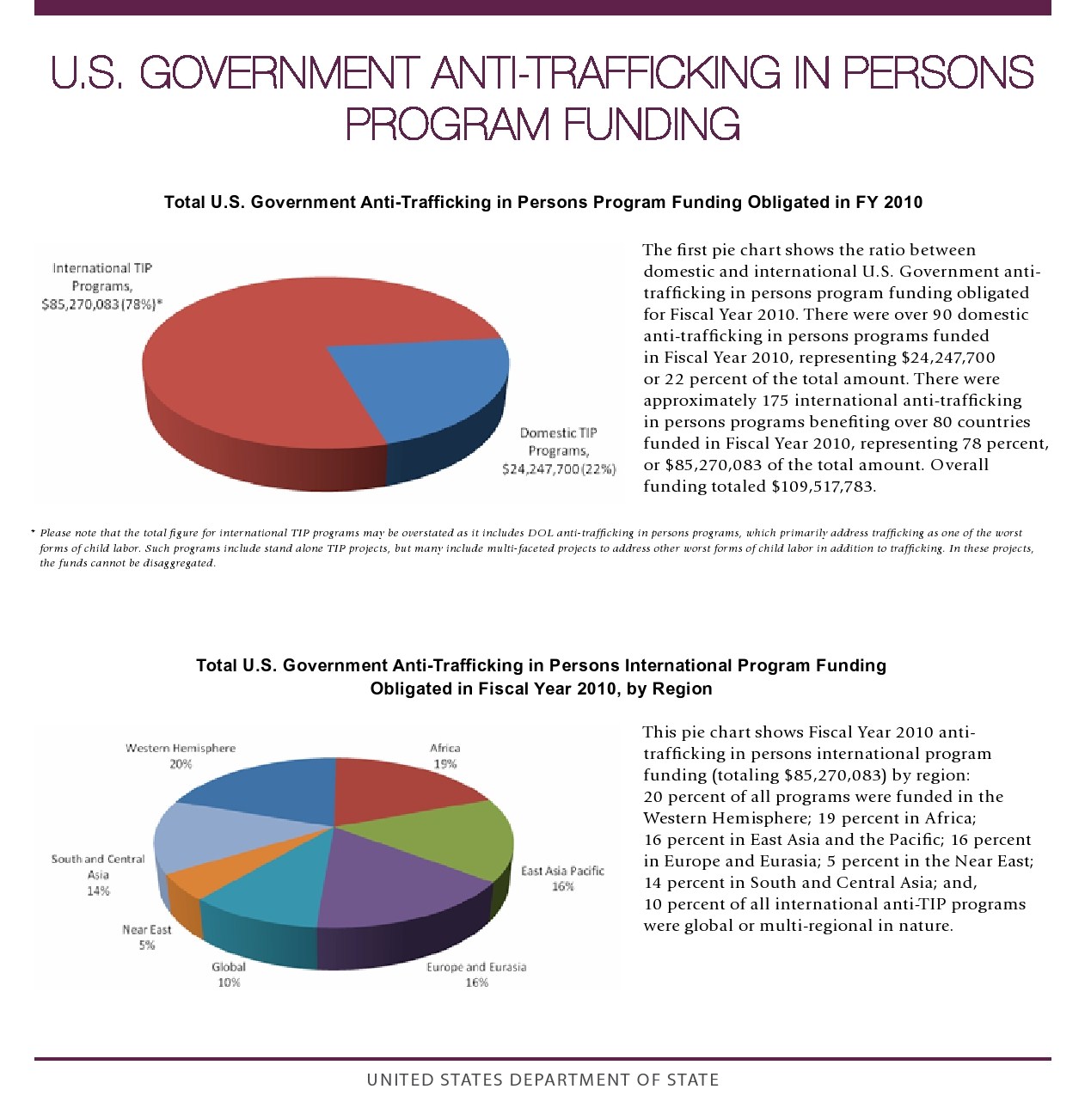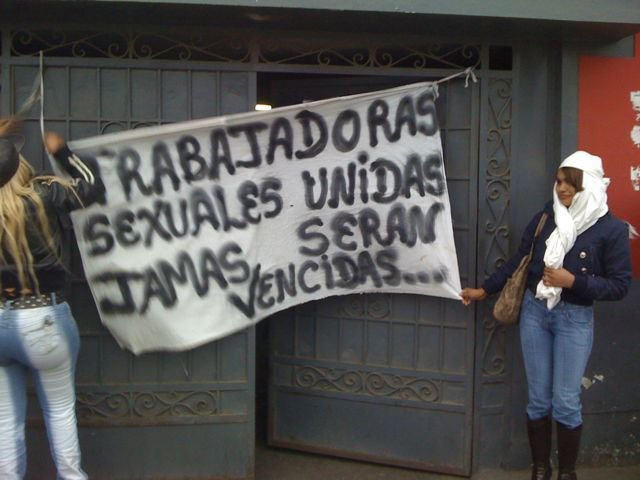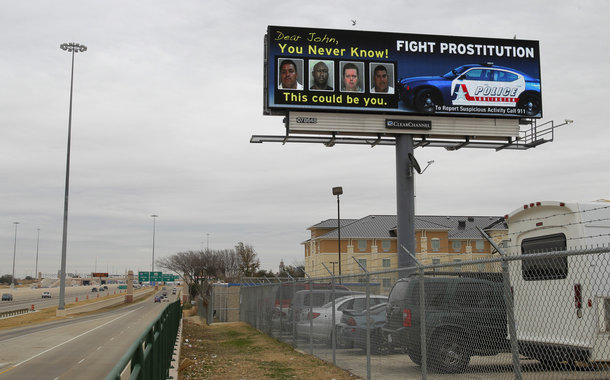 This piece was originally published in Good Vibrations Magazine 19 July 2011.
This piece was originally published in Good Vibrations Magazine 19 July 2011.
Newsweek has released a report on Melissa Farley’s nasty new study on men who buy sex of all kinds, which was financed by the Hunt Alternatives Fund as part of their 10-year plan to End Demand for buying sex. Now the latest Trafficking in Persons Report reveals that End Demand is also part of US government policy, which means that some of the big spending – $109 million last year – on anti-trafficking programmes is going to anti-client projects. US Trafficking magnate Luis CdeBaca attended the Hunt planning meetings, so this development is hardly a big surprise. I recently wrote about a World Gender War in the form of campaigns against male sexuality: desire, penetration and the penis itself: an international trend, but money from a rich philanthropist certainly puts the US in charge.
The theory that if men stopped buying sex no one would offer it anymore is a breath-taking over-simplification of the many different services and desires involving money and sex and the multitude of social and cultural conditions involved. How people now selling sex as a livelihood would earn their living if clients disappear is never mentioned – which is disturbing. I appreciate that campaigners are talking long-term and utopically, but to never address economic and employment issues seriously? I hope they do not feel that preventing women from selling sex means saving them from a fate worse than death.
This notion of demand fails to square with some well-known client types, such as the one Thomas Rowlandson portrayed here around 1800, described by the Wellcome Library as A prostitute leading an old man into the bedroom and taking money from him, implying that her services will act like a tonic and preserve his state of health. I guess Farley didn’t manage to find any men like this to talk to.
Here is the End Demand statement from this year’s TIP, ridiculously called a Fact Sheet, when it is only a moral aside revealing the government’s wish that culture would change. Yes, they wrote the phrase new innovations.
Prevention : Fighting Sex Trafficking by Curbing Demand for Prostitution
A growing understanding of the nature of trafficking in persons has led to new innovations in addressing demand. Corporate standards for monitoring supply chains and government policies for eliminating trafficking from procurement practices are making new inroads in the fight against modern slavery. But the fact remains: if there were no demand for commercial sex, trafficking in persons for commercial sexual exploitation would not exist in the form it does today. This reality underscores the need for continued strong efforts to reduce demand for sex trafficking by enacting policies and promoting cultural attitudes that reject the idea of paying for sex.
Policies to Address Demand for Commercial Sex
Governments can lead both in practice and by example by implementing zero-tolerance policies for employees, uniformed servicemembers, and contractors paying for sex. If paying for sex is prohibited for those who work for, or do business with, a government, the ripple effects could be farreaching. Through their massive procurement, governments have an impact on a wide range of private-sector actors, and policies banning the purchase of sex could in turn reach a significant part of the private sector as well. At the same time, governments have the capacity to raise awareness of the subtle and brutal nature of this crime by requiring training of employees, contractors, and subcontractors about how individuals subjected to sex trafficking are victimized through coercion. Too often, trafficking victims are wrongly discounted as “consenting” adults. The use of violence to enslave trafficking victims is pervasive, but there are other more subtle forms of fraud and coercion that also prevent a person from escaping compelled servitude. A prostituted person may have initially consented, may believe that she or he is in love with her or his trafficker, may not self-identify as a victim, may not be operating in the vicinity of the pimp, or may have been away from the pimp’s physical control with what seemed to be ample opportunity to ask for help or flee. None of these factors, taken alone or in sum, means that she or he is not a victim of a severe form of trafficking. Ensuring that these facts are part of the required training for every government employee and everyone who does business with or on behalf of a government is an important step in shifting attitudes about commercial sex.
Moral Leadership in the Future of this Struggle
Strong policies are critical for ridding countries of all forms of modern slavery, but ultimately for encouraging a broader cultural shift in order to make meaningful progress in reducing demand for sex trafficking. This can only be achieved by rejecting long-held notions that regard commercial sex as a “boys will be boys” phenomenon, and instead sending the clear message that buying sex is wrong. Lawmakers have the power to craft effective antitrafficking legislation, but they also have a responsibility to represent values that do not tolerate abuses of commercial sex. Business leaders need to cultivate a corporate culture that leaves behind outdated thinking that turns a blind eye to the sex trade, including the adoption of codes of conduct that prohibit purchasing sex. And leaders in civil society – from teachers to parents to ministers – must foster the belief that it is everyone’s responsibility to reduce the demand for sex trafficking. It is especially important to reach young men with a strong message of demand reduction to help them understand the exploitation involved with commercial sex and combat the glamorization of pimp culture. It is every person’s individual responsibility to think about their contributions to trafficking. Laws and policies, partnerships and activism will continue to be critical to the struggle against modern slavery, but it will also be the day-to-day decisions of individual men and women that will bring an end to sex trafficking and carry forth a message of freedom for all.
UNITED STATES DEPARTMENT OF STATE
Office to Monitor and Combat Trafficking in Persons
Washington DC June 2011
–Laura Agustín, the Naked Anthropologist



























